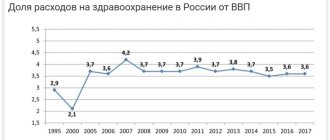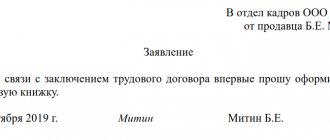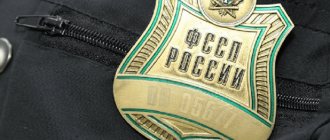Basic laws
According to Federal Law No. 124 of July 24, 1998, a citizen of the Russian Federation who is not yet 18 years old is considered a minor. The following legal acts are considered the main laws on children’s rights in Russia:
- Constitution of the Russian Federation;
- Federal Law No. 273 of December 29, 2012;
- Federal Law No. 124 of July 24, 1998;
- Federal Law No. 159 of December 21, 1996;
- Federal Law No. 181 of November 24, 1995
The legal rights and specific responsibilities of parents, as well as a minor, are spelled out in detail in Section 4 of the RF IC and in the Convention on the Rights of the Child of November 20, 1989 (hereinafter referred to as the Convention).
Federal Law of July 24, 1998 No. 124-FZ “On the Basic Guarantees of the Rights of the Child in the Russian Federation”
Federal Law of December 29, 2012 No. 273-FZ “On Education in the Russian Federation”
Federal Law of November 24, 1995 No. 181-FZ “On social protection of disabled people in the Russian Federation”
Federal Law No. 159-FZ of December 21, 1996 “On additional guarantees for social support for orphans and children without parental care”
Convention on the Rights of the Child (approved by the UN General Assembly on November 20, 1989)
The Constitution of the Rights of the Child in brief
In order to protect children from information harmful to their health and (or) development, Federal Law of December 29, 2010 N 436-FZ “On the protection of children from information harmful to their health and development” was adopted. 8. The child has the right to personal and family life, the inviolability of his home, the right to keep his correspondence, telephone conversations, and personal data secret. In case of infringement or unlawful interference, the rights of the child are protected.
This is interesting: What are food products?
The child has the right to freedom of thought, conscience and religion, freedom of association and assembly. 7. The child has the right to access information. Information must have a favorable moral orientation and contribute to the full physical and mental development of the child. He must be protected from other information that is harmful to the well-being of the child, including at the legislative level.
Categories of children
In accordance with Art.
1 Federal Law No. 124 of July 24, 1998, a citizen of the Russian Federation who has not yet turned 18 years of age is considered a minor. A similar term is specified in the RF IC. There are 2 categories of children: minors and minor children. These concepts have their differences.
A citizen of the Russian Federation aged 0-13 years is considered a minor. Children aged 14-18 years are considered minors.
Attention! Until the age of 14, a minor is considered incompetent. Without taking into account his personal opinion, guardians, parents or adoptive parents make transactions or other various legal actions. After reaching the age of 14, a citizen of the Russian Federation acquires partial legal capacity (the right to carry out small transactions); from the age of 18, full adulthood begins.
Basic rights of children
According to the RF IC and the international Convention of November 20, 1989, in Russia children have fundamental rights to the following legal things:
- on your full name, citizenship;
- to obtain your full name, citizenship;
- to protect personal legal rights;
- to ensure a decent standard of living;
- to freedom of expression of one's own thoughts and religion;
- access to secure various information;
- to your home;
- to receive all types of Russian education;
- for free medical care;
- for state protection from dangerous information;
- for life;
- to move around the city at night;
- to the personal freedom that a minor is granted in Russia;
- to sexual and other integrity;
- to communicate with various close relatives;
- to keep your correspondence on the Internet and telephone calls secret;
- for leisure or entertainment that is age appropriate;
- to attend various festive and cultural events;
- to state protection from labor exploitation.
Below we briefly discuss the main provisions of such a list of children's rights in Russia.
The right to receive your full name and citizenship
According to Art.
RF IC, both parents give a minor a name: a patronymic - according to the specific name of the natural father, a surname - mother or father. If the mother and father have different surnames, then after reaching a compromise they choose one of the surnames. More often the baby is given the father's surname. If there is no compromise between the parents, then the child’s last name or first name is given by the local guardianship authority.
Important! If children are not yet 14 years old, then parents change their full name only with the permission of an employee of the Social Security Administration. If a minor is already 10 years old, then his last name or first name is changed only with his approval.
Article 58 of the Family Code of the Russian Federation “The child’s right to a first name, patronymic and last name”
Read also: How to change your last name after a divorce to your maiden name
Family rights
In modern Russia, children have many different rights. Below we discuss in detail those that relate to the residence of a minor in a family.
The right to live in a full-fledged family
According to Art.
RF IC, minor children communicate freely with their own parents, as well as other relatives. After a mother and father divorce and they move to different apartments, the child or teenager remains with one of them. Competent authorities prohibit the mother or father (or both parents) from contacting children only if such actions are carried out to ensure the safety of a minor citizen of the Russian Federation. For example, in various cases of abuse of children by legal representatives.
Article 54 of the Family Code of the Russian Federation “The right of a child to live and be raised in a family”
The right to state protection from abuse of legal representatives
The following actions are considered abuse of minors and young children by parents:
- use of any type of violence;
- insult;
- intimidation, etc.
According to Art. The Investigative Committee of the Russian Federation, minor teenagers and young children personally go to the Department of Social Protection of the Population (and after 14 years - directly to the court) with a demand to protect them from attacks by their natural or adoptive father or mother.
Important! In case of cruel treatment of a minor, he is taken away from his parents (Article RF IC). In addition, for such offenses a fine of 100-500 rubles is imposed.
According to Art. 21 of the Russian Constitution, minor children have the legal right to receive state protection. In this situation, in relation to a child or teenager whom the parents have abandoned or they do not fulfill their duties, the following actions are performed:
- given up for adoption;
- transferred to a law-abiding foster family;
- sent to an orphanage.
Depending on the specific circumstances, employees of the Social Security Administration or the court choose one of the above options for protecting a child or teenager.
Article 56 of the Family Code of the Russian Federation “The child’s right to protection”
Article 69 of the Family Code of the Russian Federation “Deprivation of parental rights”
The right to free expression of one's own thoughts
According to Art.
RF IC, children freely express their thoughts and give their assessment of any controversial issues that concern them. The teenager’s definite opinion is also taken into account in court. This is done without fail when children reach 10 years of age and if the interrogation of a minor does not infringe on his rights. Minors express their opinions in writing or orally. In the first case, the court considers various children's drawings and other information.
Article 57 of the Family Code of the Russian Federation “The right of the child to express his opinion”
Right to privacy
According to Art.
23 of the Russian Constitution, a minor child has a constitutional right to freedom and inviolability of intimate or other private life. Also, children keep their telephone or Internet messages, telephone conversations or other personal information secret. After various attacks on the intimate and other private life of a minor child, the Social Security Administration and the court side with the victim.
Protection of children's legal rights
According to Art. RF IC, children have the right to protect their own legitimate interests and various rights. The parents (adoptive parents, guardians), the Social Security Administration, the prosecutor or the judge take the side of the injured minor.
Important! Minor capable citizens of the Russian Federation, until they reach the age of 18, have the right to independently defend their specific civil rights and various responsibilities. For example, in case of violence from parents, teenagers can seek help from the local Social Security Administration (guardianship department).
Right to a decent standard of living
Parents provide the child with a decent standard of living, which is necessary for his normal full development (Article 27 of the Convention of November 20, 1989).
At the same time, the state helps the mother or father who cannot provide their children with everything they need. Read also:Is it possible to withdraw an application from the registry office?
Thus, low-income Russian families are provided with several different benefits. Mothers with many children are paid maternity capital for 2 children.
Right of access to non-hazardous information
Surrounding information should have a beneficial effect on the child’s psyche and not interfere with the normal development of a citizen of the Russian Federation. When adopting various laws, the state protects children from harmful information from the Internet or other sources. Thus, on December 29, 2010, Law of the Russian Federation No. 436 was adopted on the protection of children from information that harms their health and inhibits their development.
Federal Law of December 29, 2010 No. 436-FZ “On the protection of children from information harmful to their health and development”
Children's property rights
The teenager has various property rights (receives alimony, benefits or a pension).
In this situation, the state takes the side of the children so that drinking parents or other similar legal representatives cannot spend children’s money on alcohol or other similar purposes. According to Art. Civil Code of the Russian Federation, a citizen of Russia from the age of 6 commits the following actions:
- When satisfying his personal needs, he enters into various household transactions. For example, a minor citizen buys groceries in a regular store or supermarket;
- makes various transactions without registering them with a notary. For example, on their birthday, a minor teenager or child receives as a gift ownership rights to specific movable property (a bicycle, a laptop, money, a car or shares);
- during a divorce, he himself determines which of his natural parents he wants to live with.
Important! According to Art. Family Code of the Russian Federation, when protecting the constitutional or other rights of a child, the court is obliged to listen to his opinion. This happens if the minor participant in the trial is already 10 years old.
Article 28 of the Civil Code of the Russian Federation “The legal capacity of minors”
Getting an education
According to Art.
43 of the Constitution of Russia, according to this law of the Russian Federation, the child is given the social right to free preschool education, as well as to study at school up to grades 9 and 11. The minor independently chooses the appropriate technical school and form of education. To obtain free education at a university, a teenager undergoes a separate competition. In Russia, the social rights of children are respected in this way - they pay state scholarships, pay for food and travel on a tram or other transport.
Medical support
According to Federal Law No. 178 of July 17, 1999, minor children are provided with the following medical or other similar government services:
- undergoing medical examination and treatment in a children's clinic;
- provision of social assistance, free medical services and food;
- information about health status, etc.
Attention! Adolescents over 15 years of age are asked to consent to the operation or to refuse it.
Federal Law of July 17, 1999 No. 178-FZ “On State Social Assistance”
Leisure and wellness
According to Art.
1 Federal Law No. 124 of July 24, 1998, in the summer children are provided with free recreation in an accredited children's camp, which is in the Unified State Register of Legal Entities. Sometimes parents buy their children's vouchers themselves. Then the mother or father submits documents to the guardianship and trusteeship department of the local Social Security Administration for reimbursement of expenses. Most often this is done by single mothers.
Important! The amount and percentage of monetary compensation are set by specific regional authorities. They receive money not only for the trip to the camp itself, but also for travel there and back.
Protection from harmful and dangerous information
Children and adolescents have the right to protection from various dangerous information. According to Federal Law No. 436 of December 29, 2010, a child’s access to the following information is limited:
- Photos, videos with bloody scenes;
- Erotica, porn on the Internet;
- Advertising information about alcohol, cigarettes, etc.
Attention! Prohibited information products are marked with age marks 16+ and 18+.
The right to live
A minor child in the Russian Federation is provided with various guarantees, including the right to life (Article 20 of the Russian Constitution). Children's life is considered especially important not only by the parents themselves, but also by the country's authorities. So, after the birth of a new baby, the legal representatives of the newborn are issued a Certificate of Birth.
Housing rights
According to Art.
40 of the Russian Constitution, all citizens of the Russian Federation, including minor children, have the right to their own home. When solving various housing issues involving a teenager, the main decisions are made by his parents. Read also: Violation of the rights and interests of a child
The place of residence of a teenager or child is considered to be the private house or apartment that is the actual place of residence of his parents (Part 2 of Art. Civil Code of the Russian Federation).
Article 20 of the Civil Code of the Russian Federation “Place of residence of a citizen”
Features of moving around the city at night
Teenagers are not allowed to walk down the street at night without being accompanied by their legal representatives. From 22:00 to 6:00, children are prohibited from visiting public gardens, parks or various drinking establishments.
Teenagers should not go to nightclubs and restaurants without their parents. The time from 22:00 to 6:00 is considered night time and regional authorities independently change this period (according to the season).
Personal integrity
According to Art. 22 of the Russian Constitution, freedom is considered one of the basic human values. For the abduction of a minor child, certain types of punishment are prescribed in the criminal law of the Russian Federation. According to Art. 126 of the Criminal Code of the Russian Federation, a citizen of the Russian Federation is subject to forced labor for up to 5 years or sent to prison for the same time.
Article 126 of the Criminal Code of the Russian Federation “Kidnapping”
Raising and living with a family
The state protects not only the child or teenager, but also his entire family.
The Russian Federation has introduced a ban on the illegal removal of a teenager or child and placing him in an orphanage. An exception to this rule is a court decision by which parents are deprived of parental rights. According to Art. RF IC, children from birth feel specific parental care. In the absence of the natural mother and father, the baby or teenager is adopted by adoptive parents.
Communication with distant and close relatives
According to Art. RF IC, minor children have the right to live and communicate daily not only with their mother or father, but also with other close relatives. After the divorce between a husband and wife, a child or teenager is usually left with his mother.
Article 55 of the Family Code of the Russian Federation “The child’s right to communicate with parents and other relatives”
Right to various entertainment and leisure activities
According to Art. 31 of the Convention of November 20, 1989, children have the right to spend their leisure time as they wish, but only if it is appropriate for their age. In this case, adolescents participate in a variety of games and recreational activities, freely participate in a rich cultural life, or engage in specific art.
Protection from labor exploitation
According to principle 9 of the Convention of November 20, 1989, in Russia children are protected from labor exploitation and various forms of cruelty. It is prohibited to use children as objects of trafficking.
Attention! According to Art. According to the Labor Code of the Russian Federation, a minor who is not yet 14 years old is not accepted for any work.
Article 63 of the Labor Code of the Russian Federation “The age at which it is permissible to conclude an employment contract”
Federal Law of June 24, 1999 No. 120-FZ
RUSSIAN FEDERATION
THE FEDERAL LAW
On the basics of the system for preventing neglect and juvenile delinquency
Adopted by the State Duma on May 21, 1999
Approved by the Federation Council on June 9, 1999
(As amended by federal laws dated January 13, 2001 No. 1-FZ, dated July 7, 2003 No. 111-FZ, dated June 29, 2004 No. 58-FZ, dated August 22, 2004 No. 122-FZ, dated December 1, 2004 No. 150-FZ, dated December 29, 2004 No. 199-FZ, dated April 22, 2005 No. 39-FZ, dated January 5, 2006 No. 9-FZ, dated June 30, 2007 No. 120-FZ, dated July 21, 2007 No. 194-FZ, dated July 24, 2007 No. 214-FZ, dated December 1, 2007 No. 309-FZ, dated July 23, 2008 No. 160-FZ, dated October 13, 2009 No. 233-FZ, dated December 28, 2010 No. 427-FZ, dated February 7, 2011 No. 4-FZ, dated 03.12.2011 No. 378-FZ, dated 30.12.2012 No. 297-FZ, dated 30.12.2012 No. 319-FZ, dated 05.07.2013 No. 104-FZ, dated 07.06.2013 No. 120-FZ, dated 02.07.2013 No. 185 -FZ, dated November 25, 2013 No. 317-FZ, dated December 28, 2013 No. 435-FZ, dated April 2, 2014 No. 62-FZ, dated June 4, 2014 No. 145-FZ, dated October 14, 2014 No. 301-FZ, dated December 31 .2014 No. 489-FZ, dated June 29, 2015 No. 179-FZ, dated July 13, 2015 No. 237-FZ, dated November 23, 2015 No. 313-FZ, dated April 26, 2016 No. 113-FZ, dated July 3, 2016 No. 305- Federal Law, dated 07/03/2016 No. 359-FZ, dated 06/07/2017 No. 109-FZ, dated 06/27/2018 No. 170-FZ, dated 07/26/2019 No. 232-FZ, dated 04/24/2020 No. 147-FZ)
This Federal Law, in accordance with the Constitution of the Russian Federation and generally recognized norms of international law, establishes the basis for the legal regulation of relations arising in connection with activities to prevent neglect and juvenile delinquency.
CHAPTER I. GENERAL PROVISIONS
Article 1. Basic concepts
For the purposes of this Federal Law, the following basic concepts apply:
minor - a person under the age of eighteen; (Paragraph introduced - Federal Law dated 07.07.2003 No. 111-FZ)
neglected - a minor whose behavior is not controlled due to non-fulfillment or improper fulfillment of duties for his upbringing, training and (or) maintenance on the part of his parents or other legal representatives or officials; (As amended by Federal Law No. 150-FZ dated December 1, 2004)
homeless - homeless, without a place of residence and (or) place of stay;
a minor in a socially dangerous situation - a person who, due to neglect or homelessness, is in an environment that poses a danger to his life or health or does not meet the requirements for his upbringing or maintenance, or commits an offense or antisocial actions; (As amended by Federal Law No. 111-FZ dated July 7, 2003)
antisocial actions - actions of a minor, expressed in the systematic use of narcotic drugs, psychotropic and (or) intoxicating substances, alcoholic and alcohol-containing products, prostitution, vagrancy or begging, as well as other actions that violate the rights and legitimate interests of other persons; (Paragraph introduced - Federal Law dated July 7, 2003 No. 111-FZ; as amended by Federal Laws dated April 22, 2005 No. 39-FZ; dated June 29, 2015 No. 179-FZ)
family in a socially dangerous situation - a family with children in a socially dangerous situation, as well as a family where parents or other legal representatives of minors do not fulfill their duties for their upbringing, education and (or) maintenance and (or) negatively influence their behavior or mistreat them; (As amended by Federal Law No. 150-FZ dated December 1, 2004)
individual preventive work - activities for the timely identification of minors and families in a socially dangerous situation, as well as for their social and pedagogical rehabilitation and (or) prevention of their commission of offenses and antisocial actions;
prevention of neglect and delinquency of minors - a system of social, legal, pedagogical and other measures aimed at identifying and eliminating the causes and conditions that contribute to neglect, homelessness, delinquency and antisocial actions of minors, carried out in conjunction with individual preventive work with minors and families in socially dangerous situation;
(Paragraph introduced - Federal Law dated 04.22.2005 No. 39-FZ; repealed - Federal Law dated 06.29.2015 No. 179-FZ)
Article 2. Main tasks and principles of activities to prevent neglect and juvenile delinquency
1. The main objectives of activities to prevent neglect and juvenile delinquency are:
prevention of neglect, homelessness, delinquency and antisocial actions of minors, identification and elimination of the causes and conditions conducive to this;
ensuring the protection of the rights and legitimate interests of minors;
social and pedagogical rehabilitation of minors in a socially dangerous situation;
identification and suppression of cases of involvement of minors in the commission of crimes, other illegal and (or) antisocial actions, as well as cases of inducing them to suicidal actions. (As amended by Federal Law No. 109-FZ dated 06/07/2017)
2. Activities to prevent neglect and delinquency of minors are based on the principles of legality, democracy, humane treatment of minors, family support and interaction with it, an individual approach to minors while maintaining the confidentiality of the information received, state support for the activities of local governments and public associations for the prevention of neglect and juvenile delinquency, ensuring the responsibility of officials and citizens for violation of the rights and legitimate interests of minors. (As amended by Federal Law No. 111-FZ dated July 7, 2003)
Article 3. Legislation of the Russian Federation on the prevention of neglect and juvenile delinquency
The legislation of the Russian Federation regulating activities to prevent neglect and delinquency of minors is based on the Constitution of the Russian Federation, generally recognized norms of international law and consists of this Federal Law, other federal laws and other regulatory legal acts of the Russian Federation, laws and regulatory legal acts of the constituent entities of the Russian Federation.
Article 4. Bodies and institutions of the system for the prevention of neglect and juvenile delinquency
1. The system for the prevention of neglect and delinquency of minors includes commissions for the affairs of minors and the protection of their rights, management bodies for social protection of the population, federal government bodies and government bodies of the constituent entities of the Russian Federation that carry out public administration in the field of education, and local government bodies that carry out management in the field of education (hereinafter referred to as the bodies exercising management in the field of education), guardianship and trusteeship bodies, youth affairs bodies, healthcare management bodies, employment service bodies, internal affairs bodies, institutions of the penal system (pretrial detention centers, educational colonies and criminal-executive inspections). (As amended by federal laws dated December 30, 2012 No. 297-FZ; dated July 2, 2013 No. 185-FZ; dated December 28, 2013 No. 435-FZ; dated July 3, 2016 No. 305-FZ)
2. In the bodies specified in paragraph 1 of this article, in the manner established by the legislation of the Russian Federation and the legislation of the constituent entities of the Russian Federation, institutions may be created that carry out certain functions for the prevention of neglect and juvenile delinquency.
3. Participation in activities to prevent neglect and delinquency of minors by the Commissioner under the President of the Russian Federation for Children’s Rights, Commissioners for Children’s Rights in the constituent entities of the Russian Federation, other bodies, institutions and organizations is carried out within the limits of their competence in the manner established by the legislation of the Russian Federation and (or ) legislation of the constituent entities of the Russian Federation. (As amended by Federal Law dated December 3, 2011 No. 378-FZ)
Article 5. Categories of persons for whom individual preventive work is carried out
1. Bodies and institutions of the system for the prevention of neglect and juvenile delinquency carry out individual preventive work in relation to minors:
1) neglected or street children;
2) engaged in vagrancy or begging;
3) kept in social rehabilitation centers for minors, social shelters, assistance centers for children without parental care, special educational and other institutions for minors in need of social assistance and (or) rehabilitation;
4) who use narcotic drugs or psychotropic substances without a doctor’s prescription or who use intoxicating substances, alcohol and alcohol-containing products; (As amended by federal laws dated April 22, 2005 No. 39-FZ; dated June 29, 2015 No. 179-FZ)
5) who have committed an offense resulting in the application of administrative measures; (As amended by Federal Law No. 170-FZ dated June 27, 2018)
6) who committed an offense before reaching the age at which administrative responsibility begins;
7) released from criminal liability as a result of an amnesty act or in connection with a change in the situation, as well as in cases where it is recognized that the correction of a minor can be achieved through the use of compulsory educational measures;
 who have committed a socially dangerous act and are not subject to criminal liability due to not reaching the age at which criminal liability begins, or due to mental retardation not associated with a mental disorder; (As amended by Federal Law No. 111-FZ dated July 7, 2003)
who have committed a socially dangerous act and are not subject to criminal liability due to not reaching the age at which criminal liability begins, or due to mental retardation not associated with a mental disorder; (As amended by Federal Law No. 111-FZ dated July 7, 2003)
9) accused or suspected of committing crimes in respect of whom preventive measures have been taken, provided for by the Criminal Procedure Code of the Russian Federation; (As amended by Federal Law No. 435-FZ dated December 28, 2013)
91) serving a sentence of imprisonment in educational colonies; (Subclause introduced - Federal Law dated December 28, 2013 No. 435-FZ)
10) those released on parole from serving a sentence, released from punishment as a result of an amnesty act or in connection with a pardon;
11) who have been granted a deferment of serving a sentence or a deferment of execution of a sentence; (As amended by Federal Law No. 435-FZ dated December 28, 2013)
12) released from institutions of the penal system, who returned from special closed educational institutions, if during their stay in these institutions they committed violations of the regime, committed illegal acts and (or) after release (graduation) are in a socially dangerous situation and (or) need social assistance and (or) rehabilitation;
13) those convicted of committing a crime of minor or moderate gravity and released by the court from punishment with the use of compulsory educational measures;
14) those sentenced to probation, sentenced to compulsory labor, correctional labor or other penalties not related to imprisonment.
2. Bodies and institutions of the system for the prevention of neglect and delinquency of minors, with the exception of pre-trial detention centers of the penal system and educational colonies, carry out individual preventive work in relation to parents or other legal representatives of minors if they do not fulfill their duties for their upbringing, education and ( or) content and/or negatively influence their behavior or abuse them. (As amended by federal laws dated December 1, 2004 No. 150-FZ; dated December 28, 2013 No. 435-FZ)
3. Individual preventive work with persons who are not specified in paragraphs 1 and 2 of this article may be carried out if it is necessary to prevent crime or to provide social assistance and (or) rehabilitation of minors with the consent of the head of the body or institution of the system for the prevention of neglect and juvenile delinquency.
Article 6. Grounds for individual preventive work
The grounds for carrying out individual preventive work in relation to minors, their parents or other legal representatives are the circumstances provided for in Article 5 of this Federal Law, if they are recorded in the following documents: (As amended by Federal Law No. 150-FZ dated 01.12.2004)
1) an application by a minor or his parents or other legal representatives to provide them with assistance on issues within the competence of the bodies and institutions of the system for the prevention of neglect and juvenile delinquency; (As amended by Federal Law No. 150-FZ dated December 1, 2004)
2) sentence, ruling or court order;
3) a resolution of the commission on affairs of minors and the protection of their rights, the prosecutor, the head of the investigative body, the investigator, the inquiry body or the head of the internal affairs body; (As amended by Federal Law No. 313-FZ dated November 23, 2015)
4) documents defined by this Federal Law as the basis for placing minors in institutions for the prevention of neglect and juvenile delinquency;
5) a conclusion approved by the head of the body or institution of the system for the prevention of neglect and juvenile delinquency, based on the results of an audit of complaints, statements or other messages.
Article 7. Timing for individual preventive work
Individual preventive work in relation to minors, their parents or other legal representatives is carried out within the time frame necessary to provide social and other assistance to minors, or until the causes and conditions that contributed to neglect, homelessness, delinquency or antisocial actions of minors are eliminated, or until they reach the age of eighteen years , or the occurrence of other circumstances provided for by the legislation of the Russian Federation. (As amended by Federal Law No. 150-FZ dated December 1, 2004)
Article 8. Rights of persons in respect of whom individual preventive work is carried out
1. Minors, their parents or other legal representatives in respect of whom individual preventive work is carried out are provided with the rights and freedoms guaranteed by the Constitution of the Russian Federation, the UN Convention on the Rights of the Child, international treaties of the Russian Federation, this Federal Law, and other regulatory legal acts of the Russian Federation , laws and regulatory legal acts of the constituent entities of the Russian Federation. (As amended by Federal Law No. 150-FZ dated December 1, 2004)
2. Minors who are in institutions for the prevention of neglect and juvenile delinquency enjoy the rights specified in paragraph 1 of this article, and also, in accordance with the established procedure, have the right to: (As amended by Federal Law No. 111-FZ dated 07.07.2003)
notification of parents or other legal representatives about the placement of a minor in an institution for the prevention of neglect and juvenile delinquency. If there is information about the place of residence or place of stay of parents or other legal representatives, information about the placement of a minor in the specified institution must be sent to them within 12 hours from the moment of his placement, and in the absence of information about parents or other legal representatives, the specified notification within three days from the moment of placement of the minor, he is sent to the guardianship and trusteeship authority at his last place of residence; (As amended by federal laws dated July 7, 2003 No. 111-FZ; dated December 1, 2004 No. 150-FZ)
obtaining information about the purposes of your stay in an institution for the prevention of neglect and juvenile delinquency, rights and responsibilities, basic rules governing the internal regulations in this institution; (Paragraph introduced - Federal Law dated 07.07.2003 No. 111-FZ)
appealing decisions made by employees of bodies and institutions of the system for the prevention of neglect and juvenile delinquency to higher authorities of the said system, prosecutorial authorities and the court; (As amended by Federal Law No. 111-FZ dated July 7, 2003)
humane treatment that does not degrade human dignity;
maintaining contact with family through telephone conversations and visits without limiting their number;
receiving parcels, parcels, transfers, receiving and sending letters and telegrams without limiting their number;
providing free food, a free set of clothes, shoes and soft equipment according to established standards. The norms and procedure for providing, at the expense of federal budget funds, free food, a free set of clothing, shoes and soft equipment for minors and persons over the age of eighteen who are in federal institutions for the prevention of neglect and juvenile delinquency are approved by the federal executive body authorized by the Government of the Russian Federation. The norms and procedure for providing, at the expense of the budgets of the constituent entities of the Russian Federation, free food, a free set of clothing, shoes and soft equipment for minors and persons over the age of eighteen who are in institutions for the prevention of neglect and juvenile delinquency of the constituent entities of the Russian Federation or municipalities, are approved by the laws of the constituent entities of the Russian Federation and (or) regulatory legal acts of executive authorities of the constituent entities of the Russian Federation; (As amended by federal laws dated July 3, 2016 No. 359-FZ; dated June 27, 2018 No. 170-FZ)
provision of free legal assistance with the participation of lawyers, as well as other persons entitled to provide legal assistance in accordance with the law. (Paragraph introduced - Federal Law dated 07.07.2003 No. 111-FZ)
3. The rights of minors held in institutions of the penal system and minors registered with penal inspections, as well as the organization of work to correct them, are regulated by the Penal Code of the Russian Federation and other federal laws. (As amended by Federal Law No. 435-FZ dated December 28, 2013)
4. The enumeration of the rights specified in paragraphs 2 and 3 of this article should not be interpreted as a denial or derogation of other rights of minors.
Article 81. Application of penalties in institutions of the system for the prevention of neglect and juvenile delinquency
1. For violations of the established procedure for detention in specialized institutions for minors in need of social rehabilitation, in special educational institutions of open and closed type and temporary detention centers for juvenile offenders of internal affairs bodies, the following penalties may be applied to minors: (As amended by the Federal Law of July 2, 2013 No. 185-FZ)
warning;
rebuke;
severe reprimand.
2. The following penalties may also be applied to minors in special educational institutions of open and closed type: (As amended by Federal Law No. 185-FZ dated July 2, 2013)
notification to parents or other legal representatives; (As amended by Federal Law No. 150-FZ dated December 1, 2004)
expulsion from a special open-type educational institution based on a decision of the commission for minors
Responsibilities and rights of adopted children
In Russia, an adopted child has all the above rights and specific responsibilities, which are listed in Chapter. 11 IC of the Russian Federation. The first include the following:
- State protection from harmful influences;
- Free expression of one's own opinion;
- Receiving pension payments, benefits, allowances;
- Accommodation in your own territory;
- Independent choice of friends, etc.
Important! An adopted teenager may abandon his adoptive family if there is a misunderstanding with them, or psychological pressure, or other forms of cruelty.
According to paragraph 2 of Art. 137 of the RF IC, adopted children are deprived of all the above rights and specific responsibilities in relation to their natural parents or their distant or close relatives.
In addition to basic rights, the RF IC also establishes specific obligations that adopted children must observe. For example, a teenager must clean the house, carry out legal instructions from his adoptive parents, observe the rules of personal hygiene, etc.
Article 137 of the Family Code of the Russian Federation “Legal consequences of adopting a child”







